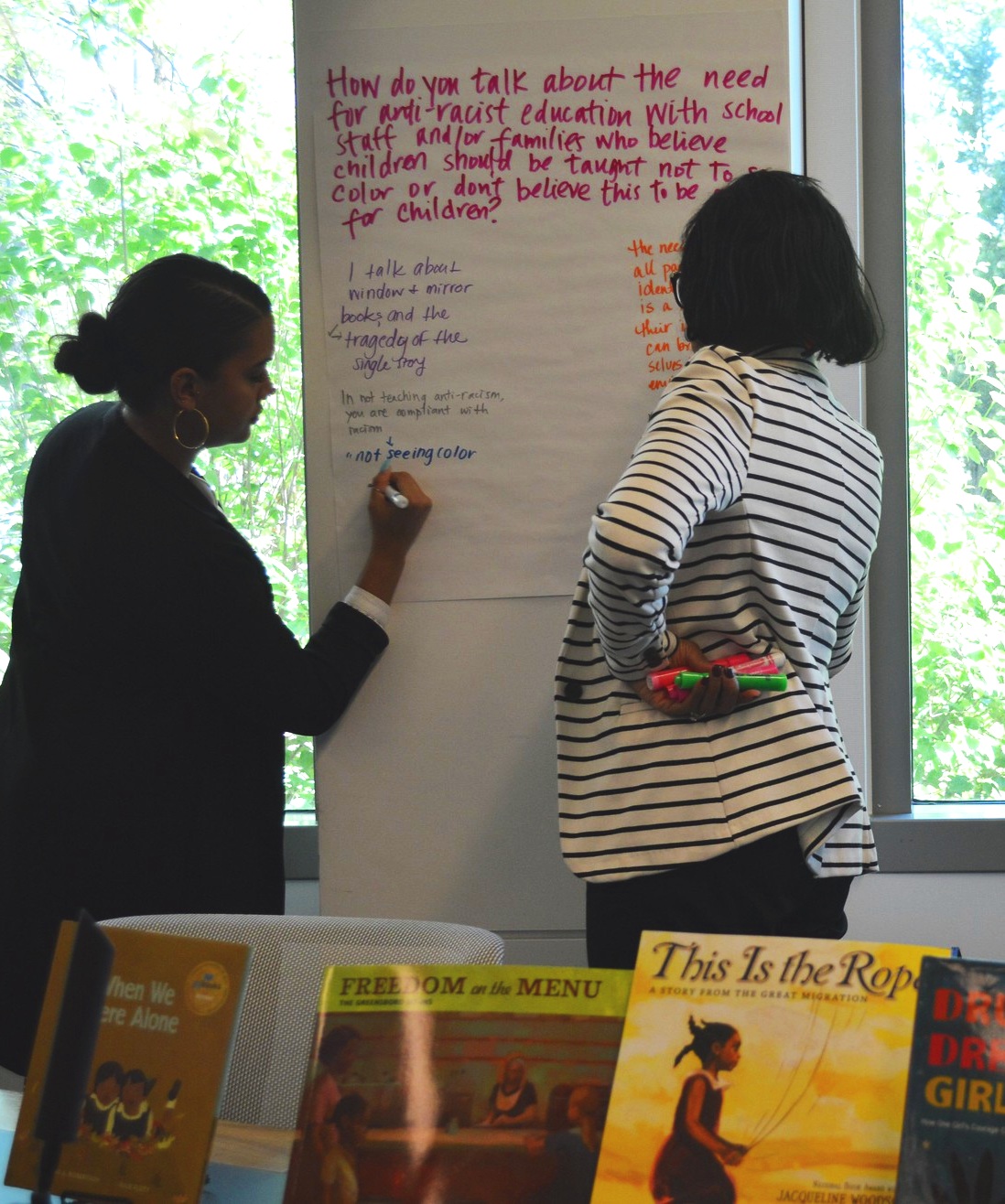Powerful Day at the Antiracist Book Festival at American University
On Saturday, April 27, 2019, the Antiracist Research and Policy Center held the First Annual National Antiracist Book Festival at American University in Washington, D.C.
Among the hundreds of attendees were Teaching for Change staff and a board member. In addition to being mesmerized by the panel presentations throughout the day, we had the honor of offering a teacher workshop in the afternoon.
The list of presenting authors was extraordinary, allowing attendees to listen in on conversations between thoughtfully paired historians and literary giants such as Erica Armstrong Dunbar and Stephanie E. Jones-Rogers; Martha Jones and David Blight; Tyehimba Jess and Clint Smith; and Bettina L. Love and Anthony Abraham Jack. These are just four of more than a dozen panels throughout the day that provided deep food for thought. The talks were followed by book signings, hosted by Politics and Prose Bookstore and Mahogany Books.
Dr. Ibram X. Kendi, founding director of the Antiracist Research and Policy Center, explained that this year's festival primarily featured authors of anti-Black racism and its intersections. He welcomed attendees with the aspiration:
As you meet new and old ideas today, we hope the insights, perspectives and advice exchanged during the festival will rejuvenate us in our struggle for an antiracist society. It is only the first of many to come.
Teaching for Change’s workshop for educators was on children's literature and anti-racist pedagogical practice. We began with a gallery walk where participants shared responses to the following gallery questions:
What messages/information promote positive racial identity for young children?
When do you teach the historical context of race and racism to young children
How do you challenge injustice in books and/or involve students in critical literacy?
What questions have you heard young children ask about racial identity or racism? (How have you responded?)
How do you talk about the need for anti-racist education with school staff and/or families who believe children should be taught not to see color or don’t believe this is a topic for children?
How do you cultivate anti-racist identity and practice with white children?
This was followed by time to explore picture books from our recommended selections at SocialJusticeBooks.org. Teachers talked about the books in light of the questions posed during the gallery walk. Some reflections from workshop participants include:
The importance of books in the fight from equitable education was made clear.
I loved the carousel (silent) and discussion afterwards. Very powerful presentation of your work.
I learned of the necessity of exploring / breaking down the layered messages in texts.
The gallery station activity was really powerful in that I got to talk to several people and making meaning of practice related to race.
I enjoyed hearing from other educators and the diverse set of books modeled.
Here are a few photos from the panels and the Teaching for Change workshop. We look forward to the Second Annual Antiracist Book Festival, scheduled for April 25, 2020.




